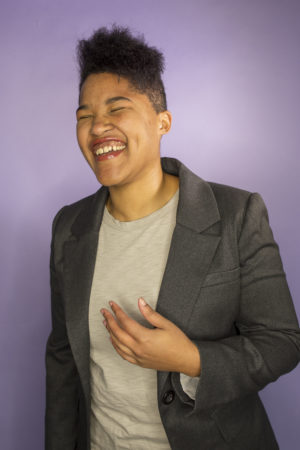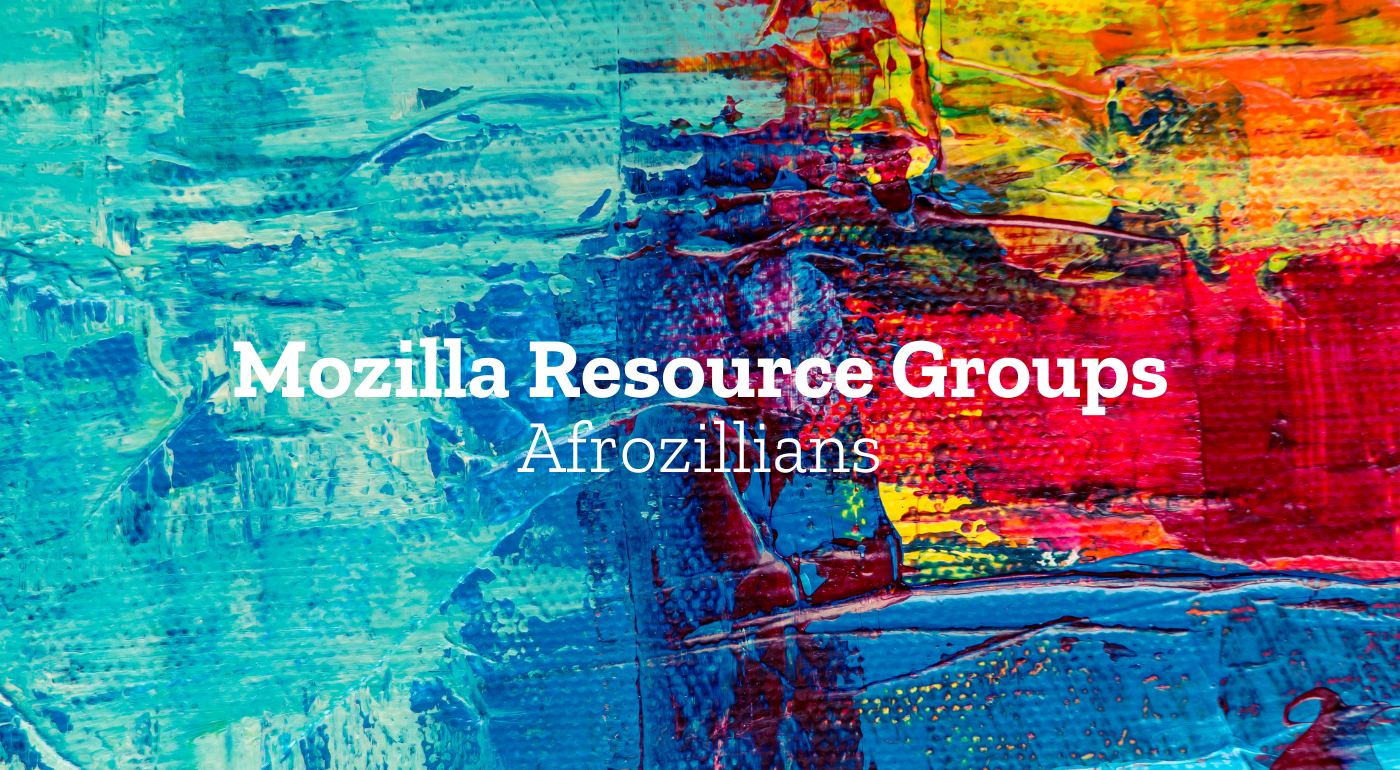It’s our mission at Mozilla to build an internet that includes everyone, regardless of demographics and opportunities, and we’re building our team the same way. We believe our growing list of Mozilla Resource Groups (MRGs)—Afrozillians, Disability@Mozilla, Pridezilla, Latin Pride, Mozilla API, and Women of Mozilla—are critical to our success.
We also believe that the best way to understand these groups is through the people in them. Below, Mozilla Channel Marketing Manager Tina Rattliff shares her experience as an Afrozillian—and her hopes for the future of the group.
Tell us why you joined Afrozillians. What does being a member mean to you?
To me, it’s a safe space for people to gather and celebrate the African diaspora—and to share our experiences honestly and openly. I haven’t participated in groups like this much in my career; either they weren’t available to me, or I didn’t see the benefit. I tend to be a bit of a lone wolf. But I joined the Afrozillians Slack channel when I came to Mozilla, and I thought getting involved with the MRG would be an opportunity to learn.
The group has shown up as a support system for me, too, in ways I didn’t necessarily expect. There were times, especially before the events of 2020, that I would almost forget I’m Afro-anything. But hearing the stories of other members has helped me recognize and process some of my own experiences. I’ve had interactions at other companies that I didn’t feel great about—like someone assuming I was part of the Customer Service team, where many of my fellow employees of color worked, when I actually worked in product marketing and sent email communications. I mostly listen to other Afrozillians, rather than actively bringing up topics myself. But being a part of this group has challenged me to not just carry things on my own or pretend they don’t exist, and to show up more fully as an advocate myself.
What kinds of activities have you been part of?
We have game sessions, which I love. One we played recently was Among Us, which is like an online version of Werewolf or Mafia, and we’ve done things like word association, too. It’s a fun way to build community, especially when everyone’s remote—which half of Mozilla was even before COVID-19.
We also do monthly Zoom chats, which are very free-form. We’ll go around and introduce ourselves and welcome the new people who have joined—then we talk about whatever we want, whether that’s traveling or kids or sharing stories from past All-Company meetings. We had one recently where we talked about food, and how even dishes with the same name can be so different in Senegal versus Nigeria versus The Gambia. It’s also a good way to learn more about what people on different teams are doing—as well as at the Mozilla Foundation, because some of their employees are part of the group.
For Black History Month, we also had a few special events like cooking classes and a panel called “Not Another Black History Month,” plus we curated a Spotify playlist to share with the team.
Beyond events, the Slack channel keeps us connected. Sometimes we talk about Mozilla specifically—the other day someone posted about how much they appreciated some recent updates to the company harassment and discrimination training. Sometimes it’s just sharing relevant news or podcasts. But it’s not just about D&I; people share wins, announce new additions to their families, post photos from the first day of school. We trade recipes and restaurant recommendations. It’s not very formal, and I think that’s refreshing. It’s important to discuss things like mentorship and growing the pipeline of candidates from diverse backgrounds, too, but those aren’t the only topics on our minds.
How does the company support diversity and inclusion?
A lot of it is just accountability. At every all-company meeting, our leaders share the D&I goals we’ve set and give updates on how we’re doing so far. We’re also supported 100% in terms of the time we need to participate in MRGs, which I really appreciate. I feel like it’s important to prioritize these conversations, rather than just squeezing them in on top of the rest of my workload. It’s easy to be skeptical about initiatives like this—every company talks about D&I, but in some cases it’s just words. I think it’s cool that Mozilla actually takes it seriously and puts resources behind it.
What’s next for Afrozillians? What are you excited about?
We have a lot of new people joining, and I’m excited to see the group grow. I’d also love to have a logo and swag like T-shirts or stickers, to raise awareness. And we’ve been talking about getting more involved with hiring—improving our understanding of how the referral process works, for instance, and how we might be able to help make it better.
For me personally, I’m excited to connect more with college grads and other early-career folks, or even students who are just starting school. I think it’s so important that we’re partnering specifically with HBCUs; I studied computer science in college, and I know what a difference one internship can make for someone from an underrepresented background who might not have connections. It changed the trajectory of my career. I want to make opportunities like that more accessible and easier to navigate for the next generation.
One of the things I love about working in technology is that it’s limitless by nature, and I want to help make sure the people who work in this industry aren’t limited either—by assumptions about gender or race or anything else. Whatever you personally want to contribute to, whatever lights your fire—that’s what you should do.
